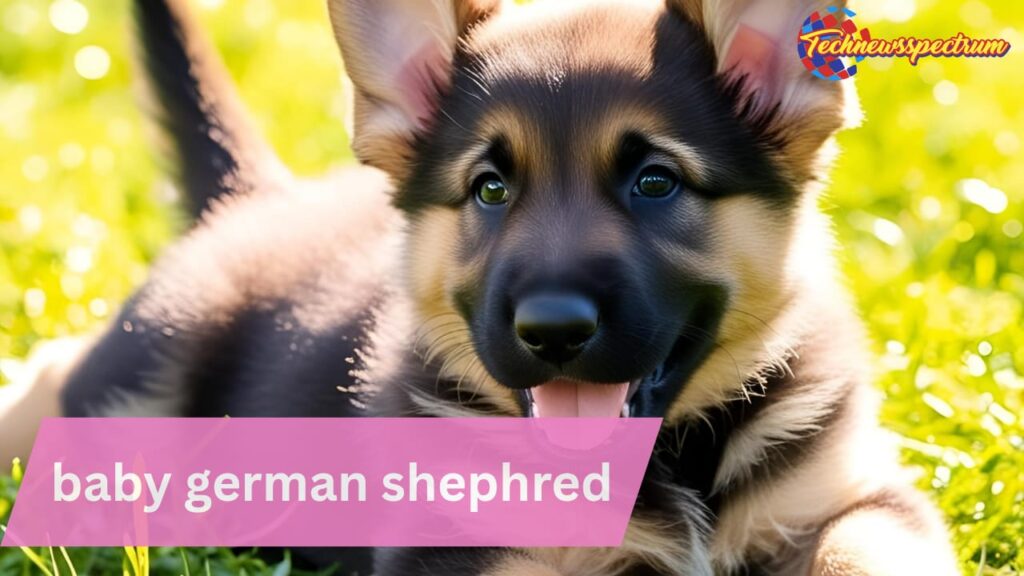Baby German Shepherd: Everything You Need to Know About Raising This Loyal Companion
Table of Contents
| Heading No. | Section Title |
| H1 | Baby German Shepherd: Everything You Need to Know |
| H2 | What Is a Baby German Shepherd? |
| H2 | History and Origins |
| H2 | Physical Appearance and Growth Stages |
| H3 | Puppy Development Timeline |
| H2 | Temperament and Personality |
| H2 | First-Time Owner’s Guide |
| H3 | Assessing Readiness |
| H3 | Puppy-Proofing Your Home |
| H2 | Nutrition and Feeding Guidelines |
| H3 | Choosing the Right Food |
| H3 | Feeding Schedule |
| H2 | Training Essentials for Baby German Shepherds |
| H3 | Socialization Strategies |
| H3 | Basic Commands and Obedience |
| H2 | Health and Vaccination |
| H3 | Key Health Considerations |
| H3 | Must-Have Vet Visits |
| H2 | Grooming Needs and Maintenance |
| H2 | Exercise Requirements and Mental Stimulation |
| H2 | Benefits of Owning a Baby German Shepherd |
| H2 | Disadvantages to Consider |
| H2 | FAQs About Baby German Shepherds |
| H2 | In Summary |
What Is a Baby German Shepherd?
A baby German Shepherd, often referred to as a puppy, is the young stage of one of the most intelligent and loyal dog breeds known today. With their iconic ears and expressive eyes, these pups are a testament to the breed’s working lineage and natural protectiveness.
These dogs are quick learners, making early training and socialization incredibly effective. From the moment they’re born, they begin to develop into the protective, friendly and energetic companions people adore worldwide.

History and Origins
Baby German Shepherds descend from a rich heritage. The German Shepherd breed was developed in Germany in the late 1800s. Initially bred for herding sheep, these dogs were recognized for their intelligence, strength and agility.
In time, their use transitioned from farms to military and police work, search and rescue and therapy. The breed’s adaptability and trainability contributed significantly to their global popularity.
Physical Appearance and Growth Stages
Puppy Development Timeline
Understanding the growth stages of a baby German Shepherd helps in proper care. Here’s a quick breakdown:
| Age Range | Development Highlights |
| 0–2 Weeks | Neonatal stage: Eyes closed, limited movement |
| 2–4 Weeks | Eyes open, early wobbly steps, mother-dependent |
| 4–8 Weeks | Weaning begins, early socialization starts |
| 8–12 Weeks | First vaccinations, playful behavior, rapid growth |
| 3–6 Months | Teething phase, increased curiosity |
| 6–12 Months | Adolescent phase, dominance behavior may appear |
During this period, monitoring weight, height and behavior is crucial. Growth spurts may vary depending on gender and individual health.
Temperament and Personality
German Shepherd puppies exhibit traits like confidence, curiosity and protectiveness. While they can be reserved with strangers, they’re typically affectionate with family.
They’re known for forming strong bonds with their owners and thrive on human interaction. Early socialization reduces future behavioral challenges.
First-Time Owner’s Guide
Assessing Readiness
Before bringing a baby German Shepherd home, it’s important to consider lifestyle, space and time commitments. These dogs require physical activity, mental engagement and socialization. If you’re often away from home, this might not be the ideal breed.
Puppy-Proofing Your Home
Prepare your environment for a curious pup:
- Remove small items that could be swallowed.
- Secure electrical cords and furniture edges.
- Create a designated “safe space” with a crate and soft bedding.
Nutrition and Feeding Guidelines
Choosing the Right Food
Look for puppy food rich in protein, DHA and calcium for bone growth. Avoid fillers like corn and soy. Brands like Hill’s Science Diet or Royal Canin (specially formulated for German Shepherds) can be reliable.
Feeding Schedule
| Age | Frequency |
| 8–12 Weeks | 4 times/day |
| 3–6 Months | 3 times/day |
| 6–12 Months | 2 times/day |
Fresh water should be accessible at all times.
Training Essentials for Baby German Shepherds
Socialization Strategies
Introduce your pup to different environments, sounds, people and other dogs early. This helps prevent aggressive or fearful tendencies.
Basic Commands and Obedience
Start with basic cues like “sit,” “stay,” and “come.” Positive reinforcement works wonders — treats, praise or a favorite toy.
Enroll in a puppy training class by 12 weeks old to build consistency.
Health and Vaccination
Key Health Considerations
Baby German Shepherds can inherit issues like hip dysplasia and digestive sensitivities. Regular checkups help catch problems early.
Must-Have Vet Visits
Essential vaccinations include:
- Distemper
- Parvovirus
- Adenovirus
- Rabies (usually after 16 weeks)
Heartworm and flea prevention should also start early.
Grooming Needs and Maintenance
Expect a double coat and regular shedding. Weekly brushing prevents matting and reduces hair around your home. During seasonal changes (spring and fall), daily brushing may be necessary.
Ears and nails should be cleaned and clipped monthly. Use vet-recommended shampoo for bathing, ideally once every 6–8 weeks.
Exercise Requirements and Mental Stimulation
Baby German Shepherds need structured playtime to prevent boredom and hyperactivity. Games like fetch, hide-and-seek or short walks are great.
Mental stimulation can include:
- Puzzle feeders
- Scent games
- Basic agility training
Avoid high-impact activities until the joints are fully developed (around 12–18 months).
Benefits of Owning a Baby German Shepherd
- Exceptional loyalty
- Strong protective instincts
- Easy to train with high intelligence
- Great with children when properly socialized
- Versatile in roles: family pet, service dog or working companion
They offer companionship that’s unmatched — always alert, always loving.
Disadvantages to Consider
- High energy levels can overwhelm novice owners
- Frequent shedding may not suit allergy sufferers
- Require consistent mental and physical activity
- Can develop behavioral problems if not trained early
Despite the challenges, proper care can transform them into lifelong partners.
FAQs About Baby German Shepherds
1. How big do baby German Shepherds get?
They can grow from about 10 pounds at 8 weeks to 70–90 pounds in adulthood depending on sex and genetics.
2. When should I start training my German Shepherd puppy?
Start training as early as 8 weeks with basic commands and socialization.
3. Are baby German Shepherds good with kids?
Yes, if socialized early and taught gentle play, they’re excellent family dogs.
4. How much should I feed my puppy?
It depends on their age and weight. Follow your vet’s recommendations and monitor their growth.
5. How often should I bathe my German Shepherd puppy?
Once every 6–8 weeks unless they get into something messy.
6. Do they need a lot of space?
Yes, access to a yard or large play area is beneficial for their energy needs.
In Summary
Raising a baby German Shepherd is a rewarding journey filled with joy, challenges and learning opportunities. Their intelligence, loyalty and eagerness to bond make them ideal for dedicated pet parents willing to invest the time.
By nurturing them with the right training, nutrition and love, you’re not just raising a dog—you’re gaining a lifelong companion that embodies courage, devotion and charm.




